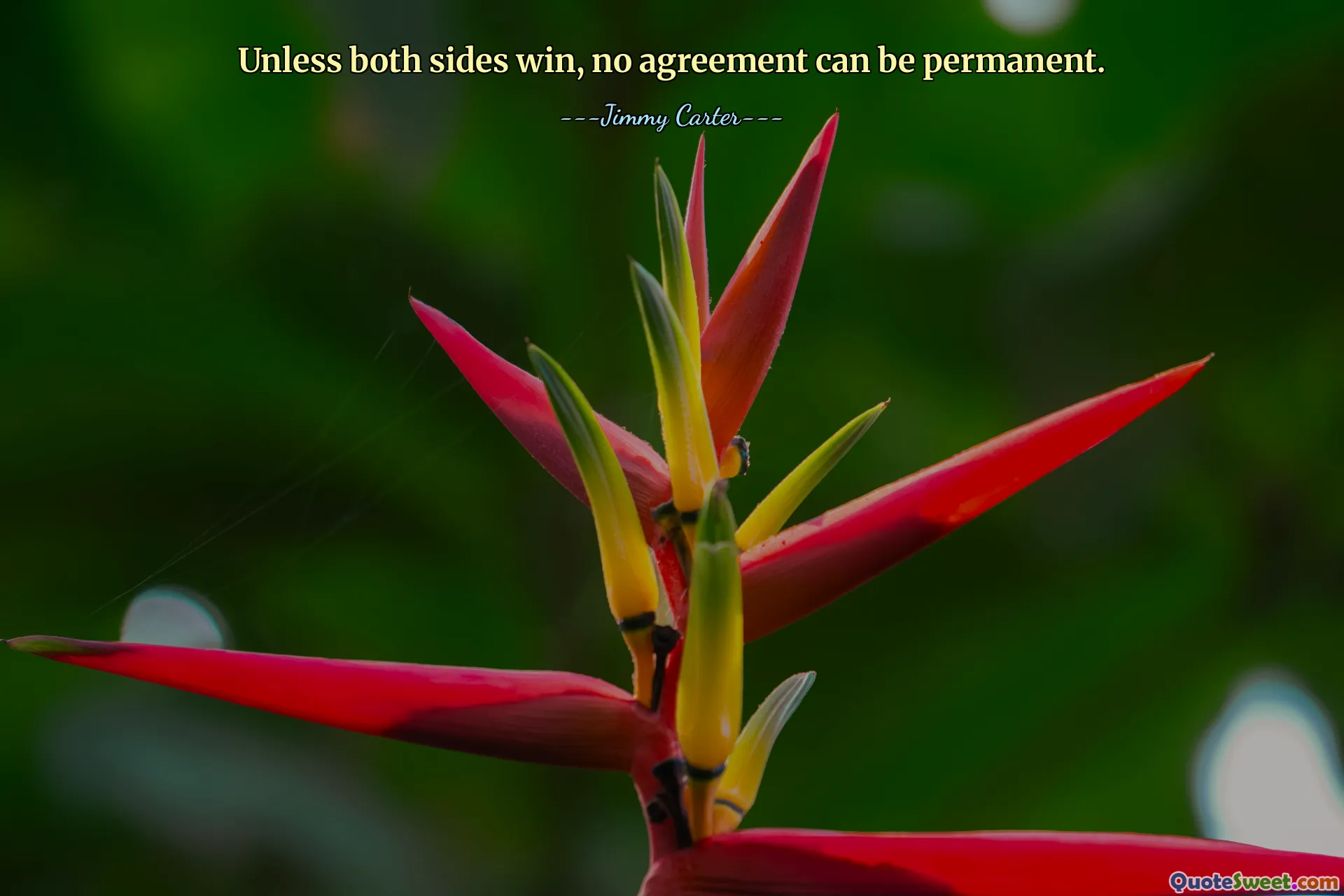
Unless both sides win, no agreement can be permanent.
This quote highlights the fundamental principle of mutual benefit in conflict resolution and negotiations. In any dispute or negotiation, the idea of a truly lasting agreement hinges on the concept of win-win outcomes. When only one side benefits, the other side is left dissatisfied, which often leads to future conflicts or breakdowns in cooperation. As the saying suggests, sustainable agreements are rooted in fairness and mutual satisfaction, ensuring that both parties feel acknowledged and valued. This concept resonates deeply in diplomatic contexts, business dealings, and personal relationships, emphasizing that compromise and understanding forge the strongest bonds and most resilient solutions.
In a broader context, the notion encourages us to think beyond zero-sum scenarios where one side's gain is another's loss. Instead, it promotes strategies aimed at creating value for all involved, fostering trust and collaboration over competition and confrontation. Achieving such balanced outcomes can be challenging, especially when interests are conflicting or deeply entrenched, but the long-term benefits are substantial. It reduces the likelihood of future disputes, enhances stability, and cultivates goodwill.
Furthermore, this idea underlines the importance of empathy, listening, and flexibility in negotiations. It reminds us that the dominant goal should be solutions that recognize the needs and aspirations of all parties rather than outright victory for some at the expense of others. As a result, peace and stability—whether in personal, political, or international realms—are more likely to be sustained when agreements are genuinely mutually beneficial.
Ultimately, the wisdom of this quote is a call for harmony, understanding, and fairness—a guiding principle for creating agreements that endure and strengthen relationships over time.











